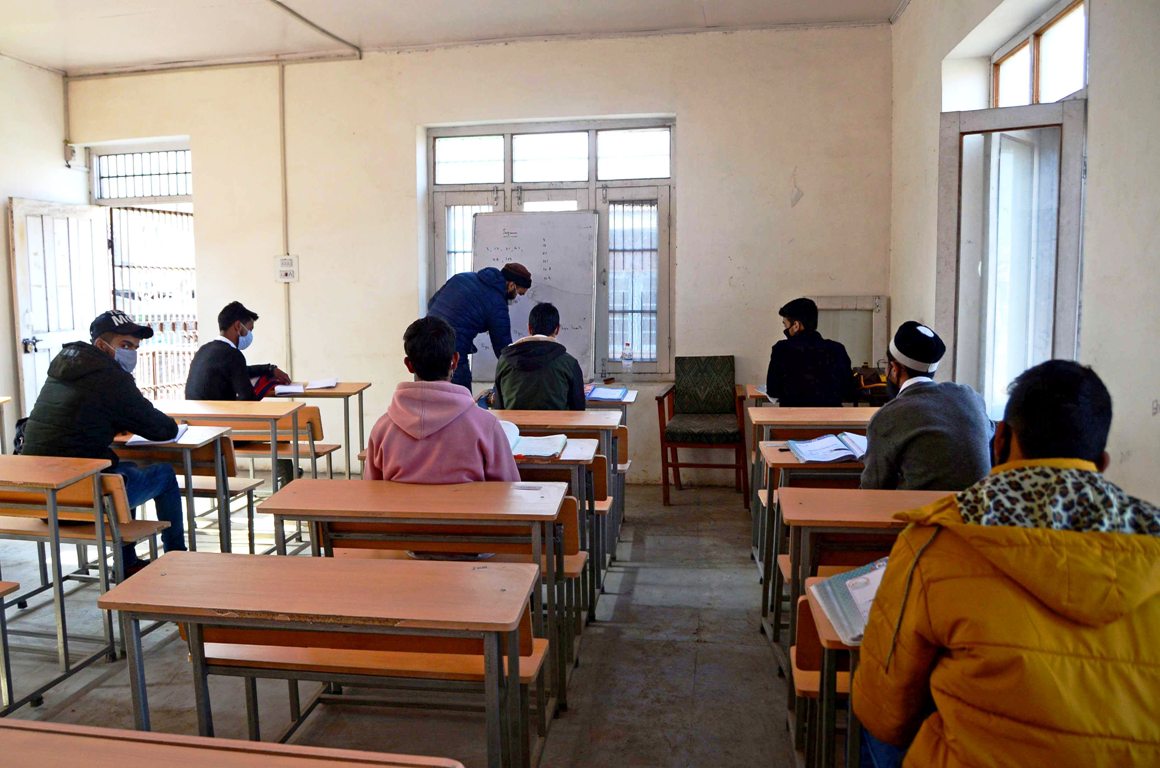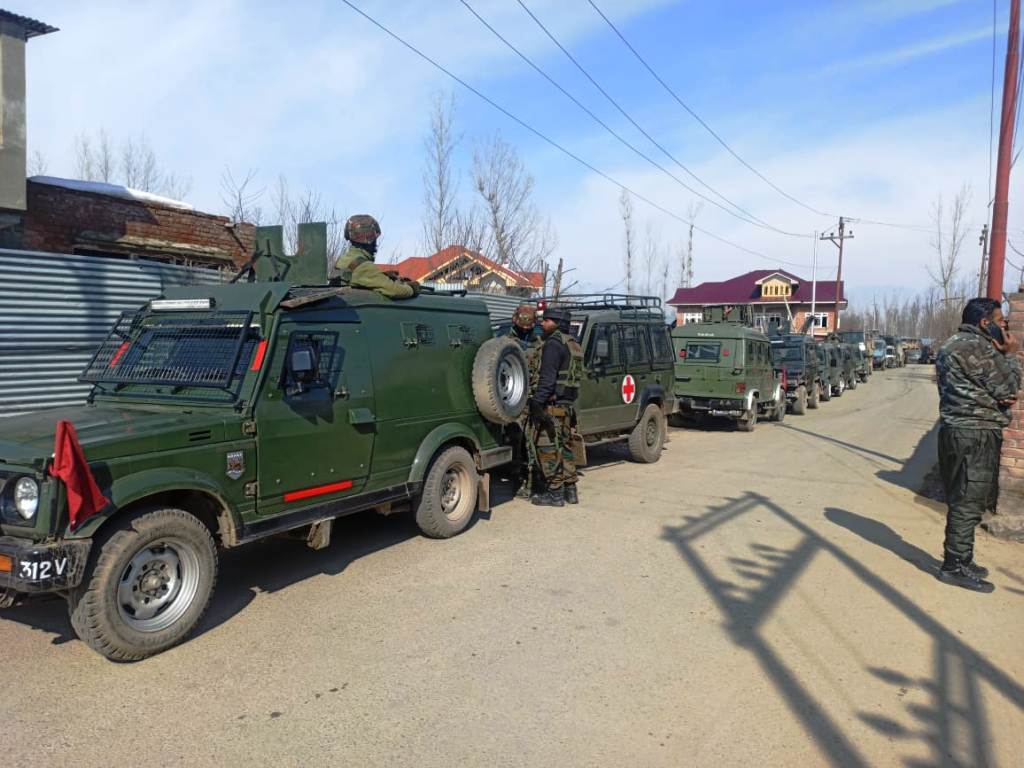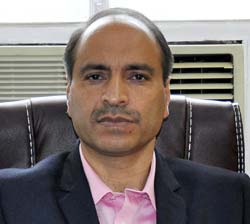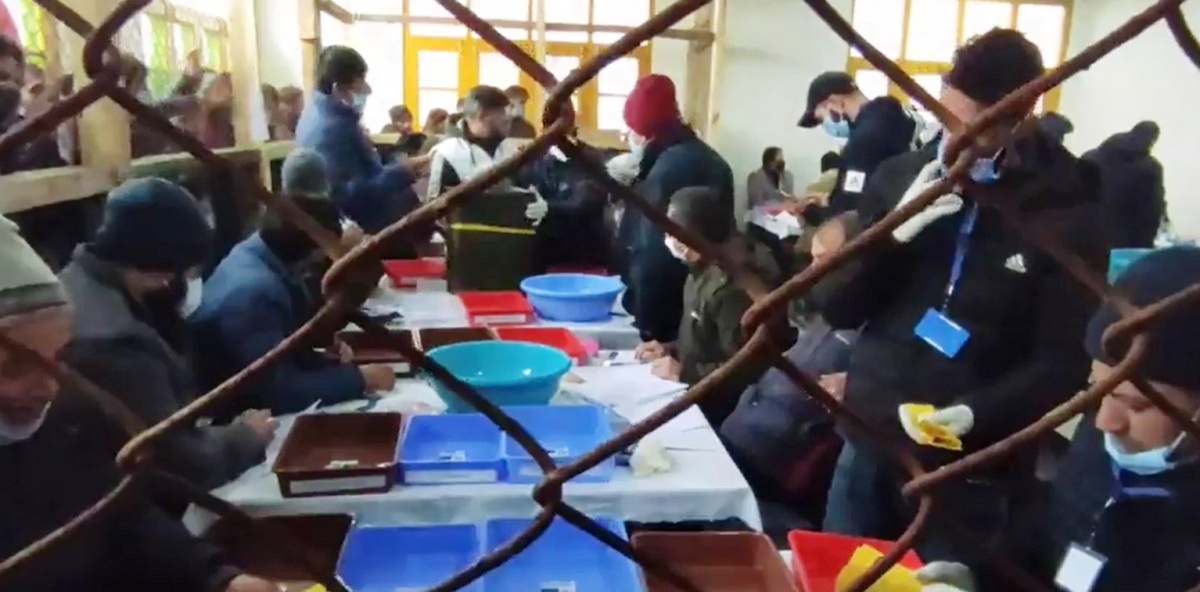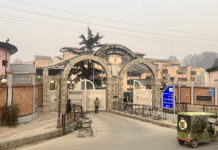KL Report
SRINAGAR
Eminent economist Dr Haseeb Drabu Saturday debunked the hartals and boycotts taking place in the valley as forms of protest. He said these protests were only hurting the Kashmiri people and economy, and were self-defeatist in nature.
Dr Drabu was speaking at a seminar on ‘Kashmir Youth: Anxieties and Aspirations’, organized by Lehar, a non-political NGO. Dr Drabu questioned why the Kashmiris were thinking of themselves as victims. “We have to move out of the politics of grudge. We have been the greatest civilization in the world. Why are we losing our social, cultural, political, and economic nationhood,” he questioned.
Drabu said what was required was a positivist notion of Kashmiri nationalism, and not a rejectionist notion of Kashmiri nationalism. “I fail to understand this notion of hartals and boycotts. Who are we boycotting against? Who does it hurt? Through these hartals, you are only exhibiting your control over the Kashmiri population that has very little choice anyway,” he said.
On being questioned by a law student that what should be the mode of protest, Drabu said the protest organized in the form of ‘Hakeekat-e-Kashmir’ was a highly creative protest. “The Hakeekat-e-Kashmir concert that was organized simultaneously with the Zubin Mehta concert focused the attention of the entire country on the real problems of Kashmir,” he said.
Drabu stated that the genuine, legal entitlements of the Kashmiri people which are available to people across the globe as their rights are being seen as the aspirations of the people here. He said this was because of governance deficit at various levels through the decades.
Drabu highlighted that in Jammu and Kashmir, people aged from 15-30 years account for a staggering 40 per cent of the total population, compared to an average 30 percentage of the population elsewhere.
“The sheer demographics make youth the most important segment in the political economy of J&K. No society can afford the marginalization of its young people,” Drabu said.
Drabu further noted that by virtue of sheer numbers, the youth of the state should and can decide the future of the nation. “No nation can prosper unless its youth are politically empowered, socially responsible, ethically aware and economically independent citizens. To reach there, we must educate, employ, engage and empower our youth,” he said.
Drabu said that there is a disconnect between individual and collective aspirations in every sphere of life. “We have lost confidence in our capabilities, in our creativity, in our comprehension to run our affairs,” he said.
This scenario, Drabu said, was largely because “we are talking about ways that portray all of us Kashmiris as ‘victims’.” This defensive attitude, he said, “has made us incapable of thinking positively and acting honestly.”
The problem, Dr Drabu said, is not about jobs but careers which will build a nation. “In the gap between these anxieties and aspirations, a few generations have been lost. Another generation, which is right now in the prime of its youth, is also threateningly close to being lost.
Drabu asserted his demand for a society where a job will not be a “naukri” funded by the Government of India, where a business will not be an enterprise profitable because of a government subsidy.
Social activist Shakeel Qalandar, who also addressed the seminar, said that protests like ‘Hakeekat-e-Kashmir’ were difficult because the state government did not give permission for it till 9 pm the previous day. “Even on the day of ‘Hakeekat-e-Kashmir’, we were not allowed to move into the designated area till an hour before the programme was to be held. In that last one hour, we set up the stage, the banners and the other infrastructure for the protest,” he said.
With regard to the shrinking space for civil liberties in Kashmir, Qalandar said that even now, civil society representatives have been seeking permission for peaceful sit-in protests from the state government, but it is not being granted.
Qalandar highlighted that there is a dire need to segregate the socio-economic aspirations of youth from their political aspirations. This had to be done after devising a methodology that does not override these aspirations, but augments both.
Prof Saddiq Wahid, former Vice Chancellor of Islamic University of Science and Technology, presided over the seminar. He said that the loss of opporunity had bred anger among the youth. “We keep employing retired people back in the universities. Don’t we have a talent pool of qualified youth to draw from,” he questioned.
Speaking on the occasion, Prof Gull Wani, Director, Centre of Kashmir Studies in Kashmir University, said that those who make peaceful revolutions impossible will make violent revolutions inevitable. Prof Wani said it is logical for any society which has gone through turmoil to think about the aspirations and anxieties of its youth, who have remained at the forefront of its numerous struggles. “Youth and their legitimate grievances are a subject matter of debate for policy makers and political leaders not only in Kashmir but in the entire south Asia. We cannot imagine a better South Asia without thinking seriously about youth and their position in the polity, economy and society,” he said.
Youth from Kashmir University, colleges in the city and in the region attended the seminar in huge numbers and had a dynamic interaction with the speakers.
Ms Rajni Shaleen Chopra, Director of NGO Lehar, said the social contract between the Kashmir youth and the policy makers is of prime importance now. “This contract can be possible in a society which is resilient and committed to justice. On the positive side, there is rise of an assertive civil society and vibrant mass media which can be helpful in rebuilding society and other institutions. All key stakeholders – the political class, policy planners and state managers will have to contribute in helping crafting this social contract,” she said.





